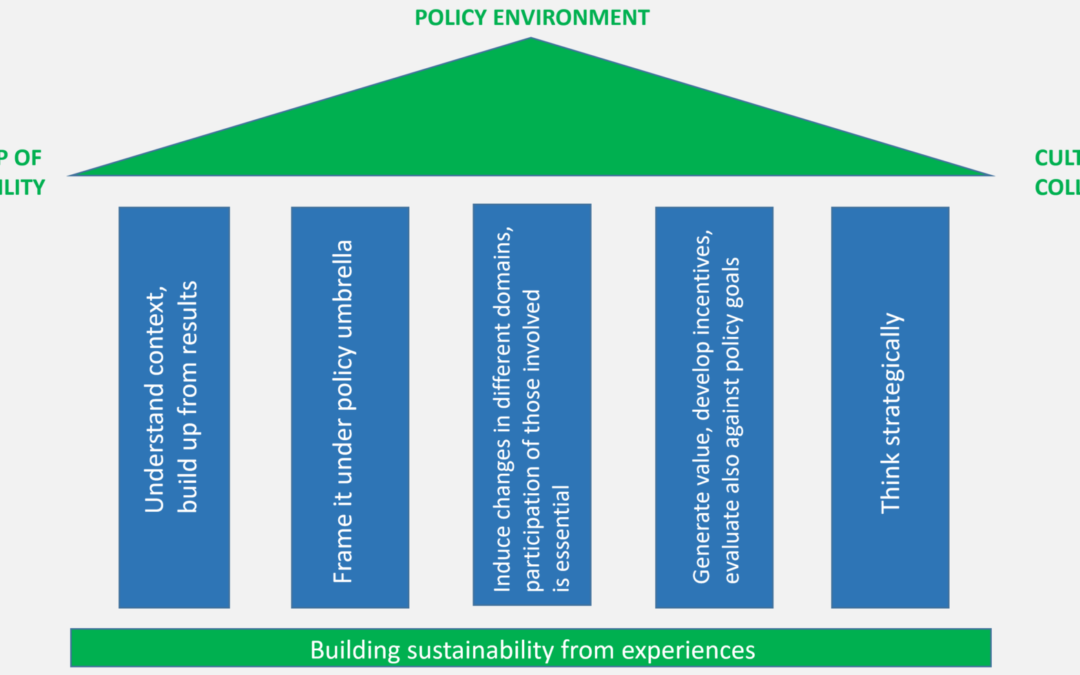In JADECARE, we have several different activities dedicated to supporting Next Adopters in their sustainability planning process. Making small steps from the very beginning of practice development and implementation, increases the potential to sustain each practice far beyond JADECARE.
Leaning on past experiences of “Early Adopters” in original Good Practices, we conducted in-depth group interviews with key representatives, who have a broad historical perspective on how sustainability of their practices was achieved. With their support, we have gained important insights, lessons learnt and recommendations for Next Adopters. The newly acquired knowledge is now available to all JADECARE partners by means of reports, webinars and other supporting materials.
While there are numerous contextual differences between countries/healthcare systems where the original Good Practices are implemented, there are three overlapping core elements of sustainability, that were commonly regarded as highly important.
- Policy environment: The practices are embedded in the national or regional policy frameworks (health strategies, policies, funding mechanisms) and strong vertical linkages were established between relevant institutions and networks. The important feature is also the presence of political consensus on the needs, objectives and strategies on how to achieve health system transformation, resilient to political changes.
- Sustainability of ownership: Each original Good Practice is complex, consisting of a variety of interventions and there are different governance structures that are responsible for its continuity. Sustainability is facilitated by high level policy individuals, managers and champions, regional/local health organisations and departments, and/or integrator companies which engage in various formal and informal networks.
- Culture of collaboration and consensus seeking: Culture as a set of beliefs, values, behaviours, perceptions and local conventions strongly influences practice implementation and its sustainability. Collaboration and consensus seeking across all stakeholders were recognised as imperative features of their local environments and a basis for assuring continuity of practices.
Our current initiatives in JADECARE use these results to frame and support sustainability planning process of Next Adopters, including the development of their sustainability strategy and action plan and building networks with their policy makers. In this respect, past experiences and successes of original Good Practices provide valuable, if not indispensable, support.
